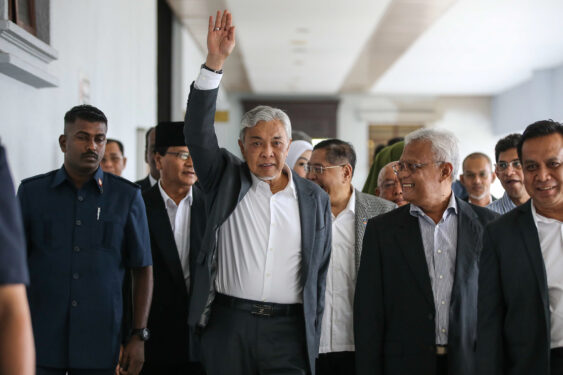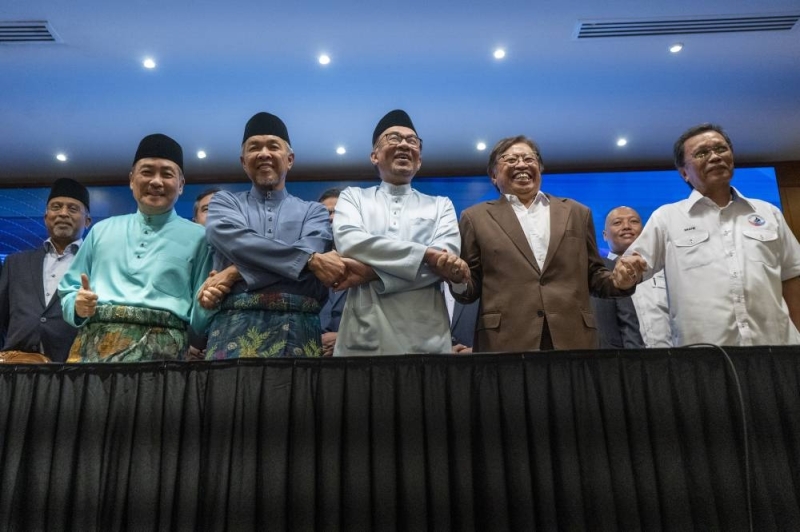IT IS becoming a joke to associate the Madani government with reforms.
In fact, the unity government was elected to power on the basis of much needed reforms – reforms to eradicate corruption, irrelevant laws, outmoded institutions, introduction of checks and balances and to the legal and judicial system and in areas to be identified.
Although Prime Minister Datuk Seri Anwar Ibrahim has been in office for 11 months, there seems to be no serious discussions about the need for reforms. Reforms are often mentioned in the passing but there is no political will exhibited by the government.
Meanwhile, there are plethora of instances that reveals that the government is for anything but for reforms.
The granting of discharge not amounting to acquittal (DNAA) to UMNO president Datuk Seri Ahmad Zahid Hamidi was an anathema in the war against corruption and financial misdeeds.
If a sitting Deputy Prime Minister could be exonerated from charges of corruption, then it speaks loud and clear of the government’s commitment to eradication of corruption which is the main scourge of the nation.
What is worse is not the freeing of Zahid but the blatant and inexcusable reasons given by the “king of reformasi” – Anwar – to defend and exonerate Zahid who is supposedly a good friend of his.
Anwar by putting the blame on the retired attorney-general (AG) Tan Sri Idrus Harun has sought to extricate himself from the shoddy egregious mess.
It was not the questionable reprieve granted to Zahid but the heavy political and moral cost to the government in justifying corruption and money laundering.
Clinging to power

Zahid’s DNAA has once and for all nailed the reform package of the pretentious Madani or unity government.
Anwar has shown without any doubts that at the end of the day, his stay in power is the most important yardstick of the government and not the war against corruption.
Frankly speaking, whatever the justification provided by Anwar or the Attorney-General’s Chambers (AGC), reforms have been buried deep in the ground.
If the eradication of corruption is treated so lightly, then how on earth can the public trust the unity government in undertaking reforms in some many areas of the government?
Despite promises, draconian laws such as the Sedition Act 1948, the Printing Presses Act 1984, the Security Offences (Special Measures) Act 2012 (SOSMA) and others continue to exist in the country.
There are no attempts to amend or remove the obnoxious aspects of these anti-democratic laws.
On the contrary, the ministers in the government are entrusted with the responsibility to justify these undemocratic laws. What a shame!
Reforms are definitely not on the agenda but there are pretensions about them. A government based on the Madani concept has little or nothing to say on ethical concerns.
What is the difference between the earlier Barisan Nasional (BN) government and the present one then? Except for change in personalities, the actions are the same or if not worse. At the very least, the BN government did not deceive the public by the pretentious call for reforms.
Pretentious, deceptive
At the international level, Anwar has the habit of giving the right messages to show that he is the right person to lead the country.
His speeches are often laced with words, concepts and historical names to give a semblance of his erudite and philosophical nature. But at the domestic front, Anwar is not too different to earlier UMNO right wing politicians.
Due to the political threat from the opposition, Anwar has embarked on the path of appeasing the Malay Muslim conservatives to the extent of condoning the nefarious quota stem of entry into matriculation programmes and entry into the country’s civil service.
Apart from repeating his mantra of Malays, Chinese and Indians are his children, he has stopped addressing the problems and anxieties of the non-Malays in the country, particularly that of the disadvantaged segments.
To the dismay of many including the ever critical opposition, his erudite posture was missing when he rudely answered the young Indian girl by justifying the government’s quota system of entry.
Yet he engages gleefully in presiding over a religious conversion of Hindu youth, angering the Indian community.
It is understandable the long gestation period that it took Anwar to become the PM. There was hope from all sections of the society that he would be the leader that Malaysians had long hoped for.
As leader of the opposition, he had built up a reputation of a serious minded reformer that the country needed. However, once in power, Anwar had shredded his earlier “skin” as a serious minded reformer.
Presently, the duty of Anwar seems not on reforms but how to stay in power for at least the full term.
Reforms are dead

Yes, internationally he can impart all the right messages that might endear him. The true nature of Anwar’s leadership must be seen at the domestic level whether he is honest and true in bringing about the much needed reforms that were promised to the public.
As far as I am concerned, reforms are basically dead in the country.
The rhetoric of reforms will be there but devoid of any meaning or substance. Talks about reforms are basically to prolong the stay of the government. Anwar’s primary objective is to serve the full term immaterial of the rot in the political and economic system.
Meanwhile, things are politically not rosy for Anwar or the Madani government. He might desist from reforms but there is not let up on the part of the opposition. Starting from the last federal elections to recent six state and the by-elections in Johor, there is an exodus of Malays moving in the direction of the opposition Perikatan Nasonal (PN).
Unless Anwar embarks on something politically drastic or unthinkable at the moment, the drift of the Malays towards the opposition is unstoppable.
The political shift of the Malays might not have anything to do with the phenomenon of green wave but perhaps due to the incontrovertible fact that PN is seen as cleaner political coalition compared to the Pakatan Harapan (PH)-BN pact.
Anyway, it is merely an academic to talk about reforms under the Madani government of Anwar. It is more appropriate to talk about the end of once promised reforms. – Sept 24, 2023
Prof Ramasamy Palanisamy is the former DAP state assemblyman for Perai. He is also the former deputy chief minister II of Penang.
The views expressed are solely of the author and do not necessarily reflect those of Focus Malaysia.









